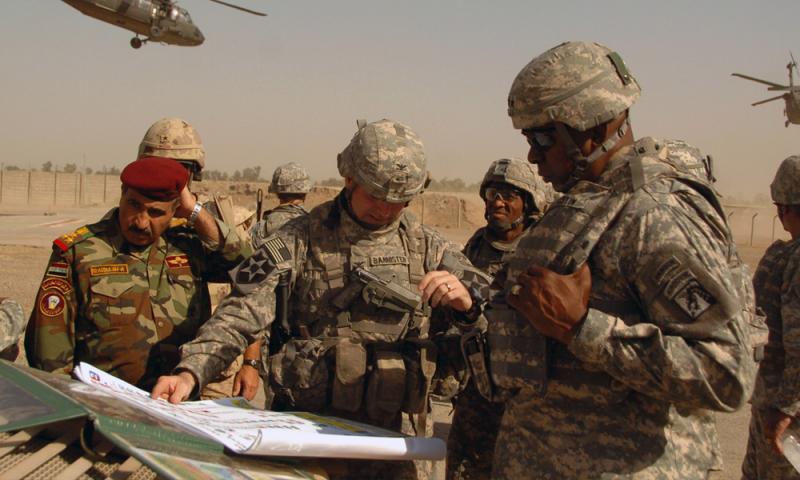The United States has no plans to pull its troops out of Iraq, Defense Secretary Mark Esper said on Monday, following reports by Reuters and other media of an American military letter informing Iraq officials about the repositioning of troops in preparation to leave the country.
The developments came in the aftermath of Friday’s drone strike in Baghdad ordered by US President Donald Trump that killed Iranian military commander Qassem Soleimani, widely seen as Iran’s second most powerful figure behind Supreme Leader Ayatollah Ali Khamenei.
Khamenei, 80, wept in grief with hundreds of thousands of mourners thronging the streets of Tehran at Soleimani’s funeral on Monday.
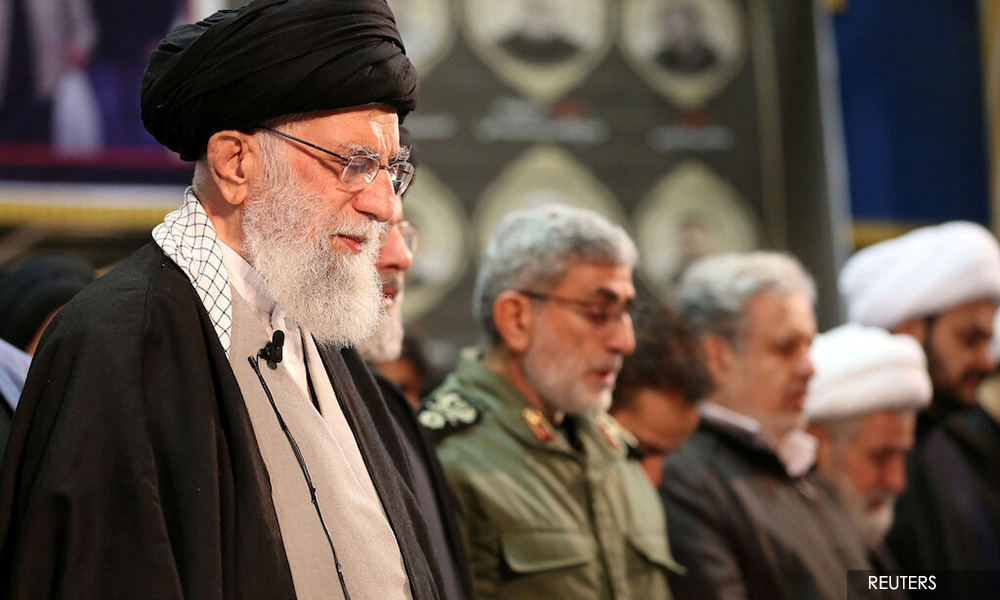
Word of the letter came a day after Iran’s demand for US forces to withdraw from the region gained traction when Iraq’s parliament passed a resolution calling for all foreign troops to leave the country.
The letter said US-led coalition forces would be using helicopters to evacuate. Several were heard flying over Baghdad on Monday night, although it was not immediately clear if that was a related development.
“There’s been no decision whatsoever to leave Iraq,” Esper told Pentagon reporters when asked about the letter, adding there were no plans issued to prepare to leave.
“I don’t know what that letter is ... We’re trying to find out where that’s coming from, what that is. But there’s been no decision made to leave Iraq. Period.”
The letter caused confusion about the future of US forces in Iraq. The United States has about 5,000 US troops in Iraq.
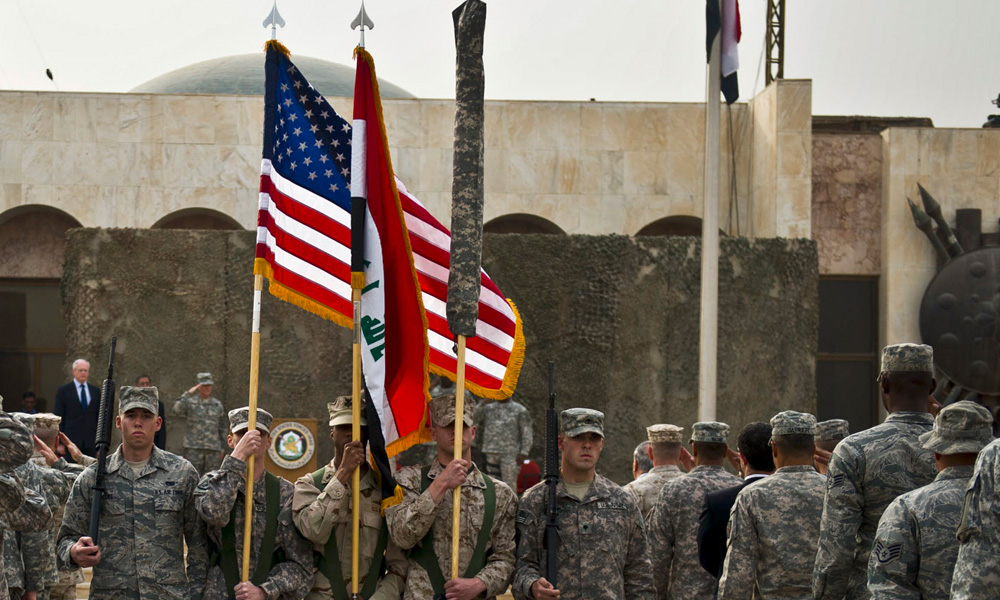
The top US military officer told reporters the letter was a poorly worded draft document meant only to underscore increased movement by US forces.
“Poorly worded, implies withdrawal. That’s not what’s happening,” said US Army General Mark Milley, chairman of the military’s Joint Chiefs of Staff, stressing there was no withdrawal being planned.
The authenticity of the letter, which was addressed to the Iraqi Defense Ministry’s Combined Joint Operations Baghdad and signed by a US general, had been confirmed to Reuters by an Iraqi military source.
Esper added the United States was still committed to countering Islamic State in Iraq, alongside America’s allies and partners.
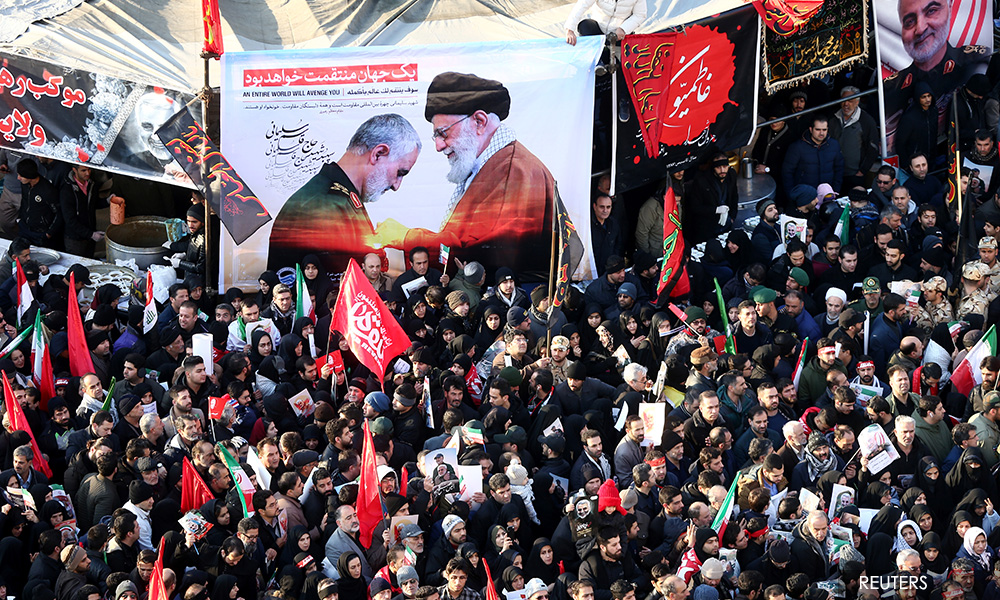
“Sir, in deference to the sovereignty of the Republic of Iraq, and as requested by the Iraqi Parliament and the Prime Minister, CJTF-OIR will be repositioning forces over the course of the coming days and weeks to prepare for onward movement,” the letter stated.
It was signed by US Marine Corps Brigadier General William Seely III, commanding general of the US-led military coalition against Islamic State.
CJTF-OIR stands for Combined Joint Task Force–Operation Inherent Resolve.
“We respect your sovereign decision to order our departure,” the letter said.
Iraqi caretaker Prime Minister Abdel Abdul Mahdi told the U.S. ambassador to Baghdad on Monday that both nations needed to implement the Iraqi parliamentary resolution, the premier’s office said in a statement. It did not give a timeline.
Throngs in Tehran
Meanwhile, in the Iranian capital of Tehran, Khamenei led prayers at the funeral, pausing as his voice cracked with emotion. Soleimani, 62, was a national hero in Iran, even to many who do not consider themselves supporters of Iran’s clerical rulers.
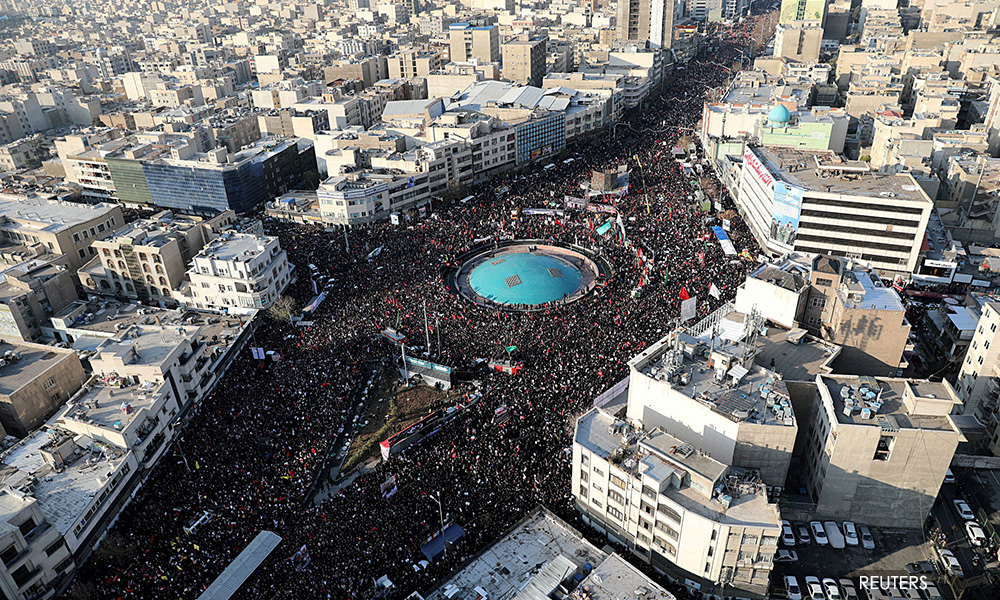
Aerial footage showed people, many clad in black, packing thoroughfares and side streets in Tehran, chanting: “Death to America!” - a show of national unity after anti-government protests in November in which many demonstrators were killed.
The crowd, which state media said numbered in the millions, recalled the masses of people that gathered in 1989 for the funeral of the Islamic Republic’s founder, Ayatollah Ruhollah Khomeini.
The killing of Soleimani has prompted concern around the world that a broader regional conflict could flare.
Trump vowed on Saturday to strike 52 Iranian targets, including cultural sites, if Iran retaliates with attacks on Americans or US assets, and stood by his threat on Sunday, although American officials sought to downplay his reference to cultural targets.
The 52 figure, Trump noted, matched the number of US Embassy hostages held for 444 days after the 1979 Iranian Revolution.
- Reuters
Pentagon says will not break law of war, despite Trump threat




